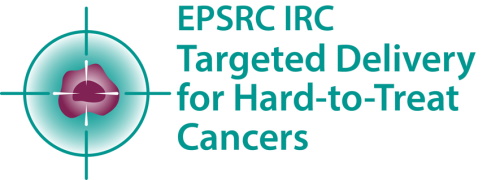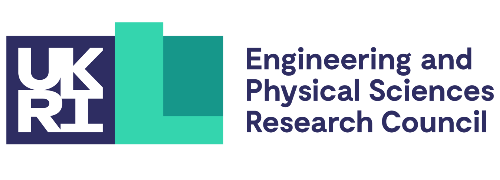
Earlier this year Dr Ruman Rahman, Associate Professor of Molecular Neuro-Oncology at the University of Nottingham, and IRC Investigator, contributed as a witness to the Oral Evidence Session for the All-Party Parliamentary Group on Brain Tumours (APPGBT) inquiry ‘Pathway to a Cure’. In this blog he shares his observations on funding barriers to brain tumour research and sets out the importance of overcoming them.
Brain tumour research is under-funded and many researchers working in this field currently rely on charities – such as the Brain Tumour Charity, Little Princess Trust and Stoneygate Trust – to find funding, mitigate the barriers and fill the gaps. While this contribution provides a much-needed resource, it is not sustainable and the funding landscape for brain cancer research has to change.
The lack of new treatment options for brain tumours is devastating for patients. Research is vital to improving the outlook for patients but there is currently a paucity of brain tumour research specific fellowship schemes for Early Career Researchers (ECRs). This is important because more government-funded fellowship schemes prioritising brain tumour research would help us to attract and retain the best innovators of the next generation. Dr Ruman Rahman, Associate Professor of Molecular Neuro-Oncology at the University of Nottingham, and IRC Investigator
I am currently an Associate Professor of Molecular Neuro-Oncology at Nottingham University and part of the IRC Programme. I have worked as a non-clinical academic researcher in brain tumours for 14 years. Brain tumours kill more children and adults under the age of 40 than any other cancer, yet historically only 1% of the national spend on cancer research has been allocated to this disease. The cause of brain tumours is not known and there are more than 120 different types of brain tumour – 16,000 people are diagnosed with a brain tumour in the UK every year and more than 60,000 people are living with a brain tumour. Despite these stark statistics, there are no active clinical trials for paediatric brain tumours in the UK at present. Sometimes it can take up to 10 years to get a trial up and running.
When the All-Party Parliamentary Group on Brain Tumours (APPGBT) – established in 2005 to raise awareness of issues in order to improve research, diagnosis, information, support, treatment and care outcomes – launched its inquiry earlier this year calling for written evidence from UK brain tumour researchers, it was an opportunity to engage. The APPGBT inquiry aims to move from ‘talk to action’ and bring focus to solutions rather than problems – and will culminate in a written report which is planned for publication in early 2023.
The lack of new treatment options for brain tumours is devastating for patients. Research is vital to improving the outlook for patients but there is currently a paucity of brain tumour research specific fellowship schemes for Early Career Researchers (ECRs). This is important because more government-funded fellowship schemes prioritising brain tumour research would help us to attract and retain the best innovators of the next generation. While the funding landscape to secure tenure track positions at universities remains too challenging to navigate, talent will inevitably be lost to other fields of research. These ECRs are our innovators and most likely to propose lateral thinking and maverick research ideas which may lead to step-changes in brain tumour research.
Brain cancer research in the UK compares favourably with the very best internationally in terms of quality and impact of research. However, we compare poorly with the number of clinical trials open for brain tumour research, predicated on the data we generate. The lag between pre-clinical data and the translation of this to clinical trials is an understandable source of frustration and ways to expedite this are needed. During the inquiry, one clinician stated that he has ten times the patients as he does available clinical trials to enrol them in.
Funding to support research into early brain cancer detection is key because early diagnosis would represent a biologically more homogenous brain tumour, for which a given drug target could be more ubiquitous and improve a drug’s efficacy. Late diagnosis typically represents an advanced tumour which is more heterogenous and likely to require combinations of drugs for any hope for better treatment response and certainly for a cure.
I believe drug delivery is a priority. The brain is the least accessible organ in the body and 90% of drugs do not penetrate the brain – or do so poorly – due to the blood-brain-barrier. Delivering drugs to the brain at therapeutic doses requires consideration of a plethora of drug delivery systems to match the best system to each brain tumour type.
Current methods to deliver cancer chemotherapy drugs result in drugs reaching all parts of the body, causing the death of healthy cells and adverse side effects for patients. This also means the amount of drug reaching the actual tumour site may not be sufficient to destroy it. My team has evaluated a new drug delivery system which uses polymer microparticles to deliver drugs directly to the site of the tumour at the time of surgery, targeting cancer cells that are often left behind and reducing drug-related side-effects throughout the body. The opportunity to deliver cancer drugs locally within the tumour resection cavity bypasses the blood-brain-barrier, targeting micro-deposits of neoplastic cells that remain following tumour resection. This has the potential to achieve a high effective dose locally while maintaining a low toxic dose systemically, resulting in less side effects for the patient.
Contributing written evidence led to my invitation as a witness to the Oral Evidence Session for the APPGBT, which took place online in March this year. The APPGBT’s decision to canvass the opinions of academic and clinical researchers as a key stakeholder to help lobby UK government and redress the relative paucity of brain tumour research public funding has marked a positive step to address issues for vital brain tumour research. I look forward to the Pathway to a Cure Report that I hope will provide a roadmap towards a sustainable career in brain tumour research, one that will attract future talent to improve outcomes for patients and their families.
• For more information about the APPGBT see here
• Read more about the work of the Brain Tumour Research national charity to raise funds for continuous and sustainable scientific research into brain tumours here.


